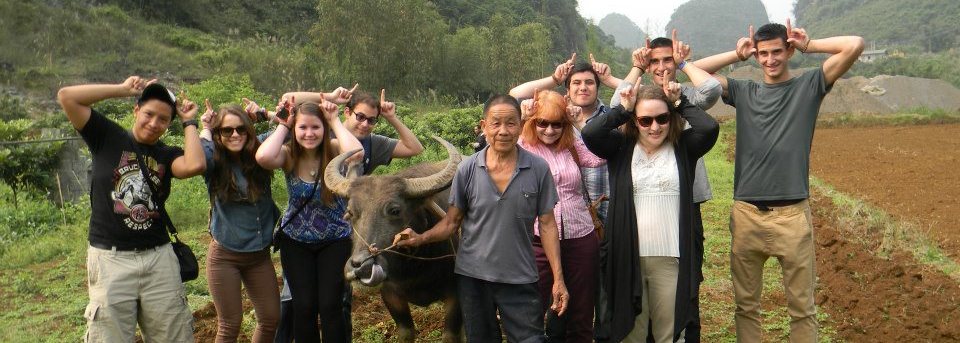What Parents Need to Know

Managing Expectations: Before, During and After Education Abroad
Managing Expectations: Before
What can parents expect from a good education abroad program?
Well-organized mechanics and smooth coordination between the host institution and providers. A timely and courteous response to questions when things go wrong, or when there are unexpected delays in the process Effective and timely communication between students, parents, home and host institutions, and/or third-party providers.
Before your child goes abroad, talk to him or her about any concerns either of you may have about their safety. If there are specific concerns you have about the country in which he will be traveling, talk about them with the program provider. Although they cannot guarantee your child's safety, or anyone's, in most cases these professionals will be able to give you a good sense of what the real risks are, how to minimize any dangers, and what your child can do to stay safe and healthy while abroad.
Managing Expectations: During
What are some expectations for a study abroad experience?
Experienced, responsible staff who are available to students on a 24/7 basis. Safe and (relatively) clean accommodations. Support, assistance, and advice from on-site staff in resolving problems. An academically sound program. The student can also expect to experience some level of culture shock, which is a normal and natural part of adjusting to another culture.
Other expectations
Not all accommodations, food, academic expectations, etc. will be similar to those found at Rider. Since the idea is to experience a foreign culture, things that are typical in the U.S. may not be abroad. It is also important for family and friends of students abroad to realize that maintaining their customary patterns of communication may take away from the full cross-cultural experience they travels so far for.
What to do in an emergency
The best source of centralized information for U.S. citizens in a true international or national emergency os the U.S. Department of State. Their website has information about how to contact them, receive information in a crisis, and get help with various kinds of emergencies. Your son or daughter should also ask their program provider what their emergency plan is, and get 24/7 contact numbers for program advisors both in the U.S. and at the study abroad site. Of course in an emergency, some of these systems can be compromised. In some emergency situations, parents may hear from their children via cell phone before the program advisers or the Office of International Education has been able to confirm their whereabouts and safety. This is a time to share information calmly and efficiently, and for parents and program advisers to work cooperatively with each other for the common goal of ensuring the student's safety and well-being. This is also the reason we encourage that both parents and students have those contact numbers in advance.
Managing Expectations: After
Expect positive change! Even when the period of study abroad has been relatively short, the son or daughter who returns to you will probably not be the same one you sent away. Almost always, the one who returns is a "new and improved" version, full of new passions and energy, and often with inspiring new ideas about their future possibilities. Recognize and celebrate the change, marvel at how even a short time abroad can inspire incredible intellectual and emotional growth in students this age, and appreciate all your child has gained from this experience.
You should also expect that your son or daughter may take a while to readjust to life at home. During this period, he or she may express impatience with or intolerance of family members, the community, school, or nation. Rather than being defensive, listen to what they have to say, and show him or her that you are interested in hearing about the new thoughts and perspectives they have absorbed while abroad. An important part of the intercultural learning takes place after the study abroad experience, and questioning one's own country and its ways is part of the process.
Acknowledge and appreciate the tremendous changes your child may have gone through since he or she left home. Let them know you can see how much they have matured. Above all, give your son or daughter the chance to tell you about his or her experience. Most students say that their experiences studying abroad were "life-changing." Don't push or pry, but do encourage them to share that important and special feeling with you.
